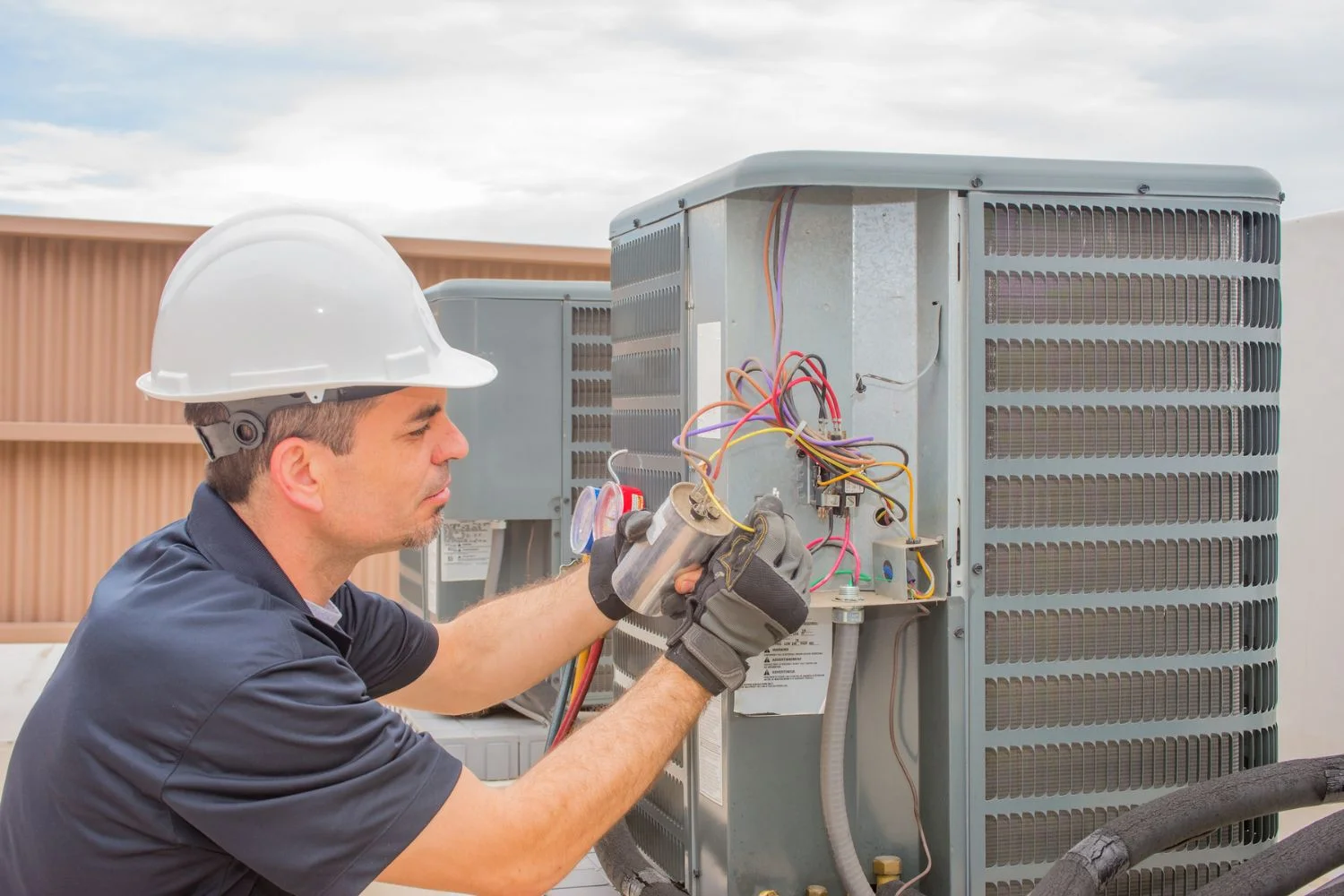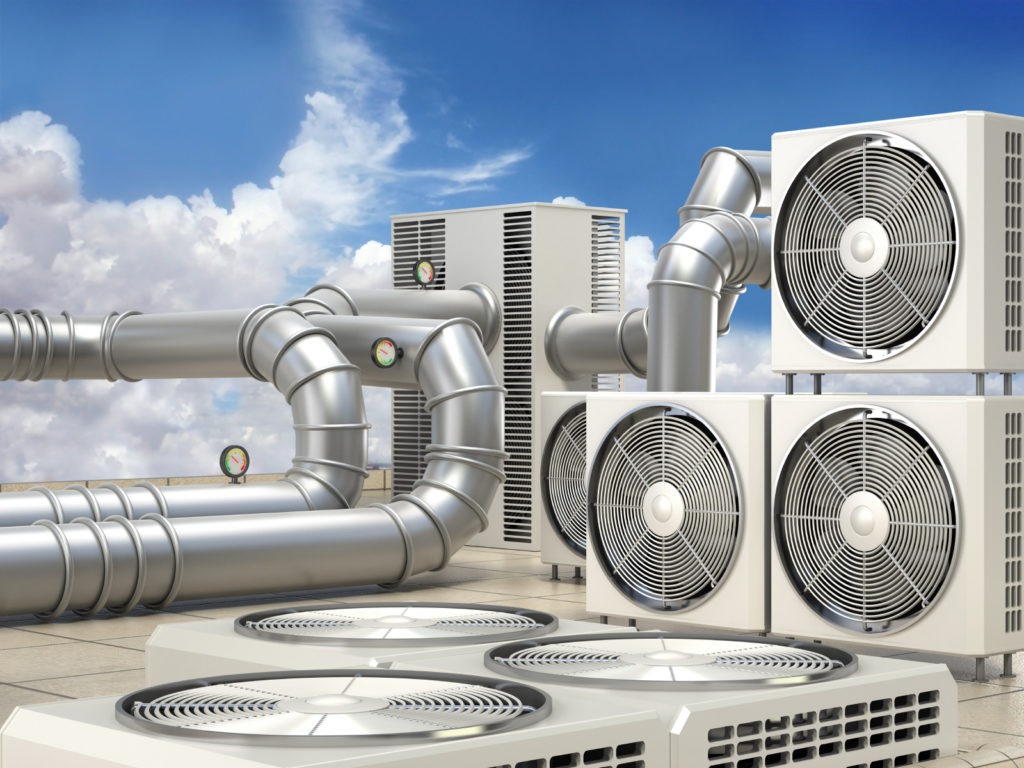The ventilation system is an essential component of any home or building. It works to maintain a comfortable indoor temperature and ensures proper air circulation. While many may see it as just another utility, the benefits of heating and ventilation System go far beyond regulating the temperature. It plays a significant role in improving our quality of life in various ways. It also contributes to improved sleep quality. By regulating the temperature and providing a steady airflow, it creates a conducive environment for a good night’s sleep.
Improved Air Quality
When it comes to our homes or buildings, air quality is of utmost importance. Poor indoor air quality can lead to a range of health issues, including allergies, respiratory problems, and even asthma. That’s why having a ventilation system in place is crucial for improving air quality and creating a healthier living environment.
A ventilation system works to filter out contaminants and pollutants from the air, ensuring that you and your loved ones are breathing in clean and fresh air. It captures dust, pet dander, pollen, and other common allergens that can trigger allergies or worsen respiratory conditions. By removing these particles from the air, it significantly improves the overall air quality in your space.
In addition to allergens, a ventilation system also helps to eliminate other harmful pollutants, such as smoke, fumes, and volatile organic compounds (VOCs). These pollutants can be emitted by household products or building materials and can have long-term effects on your health when constantly inhaled.
By investing in a ventilation system, you can ensure that the air you breathe is free from these harmful substances, reducing the risk of respiratory diseases and other health issues. Furthermore, a ventilation system can also help to control odors in your home or building.
Whether it’s the smell of cooking, pets, or other unpleasant odors, the system works to circulate fresh air and remove any lingering smells. This not only improves the overall air quality but also creates a more pleasant and inviting environment for you and your guests.
Heating and Ventilation Companies Ensure Highest Quality Service
When it comes to installing a ventilation system in your home or building, it’s important to choose a reputable and reliable company. Heating and ventilation companies specialize in the design, installation, and maintenance of these systems, ensuring that you receive the highest quality service and products. By working with a professional ventilation company, you can benefit from their expertise and experience in the field.
These companies have a deep understanding of ventilation systems, including the latest technologies and best practices. They can assess your specific needs and recommend the most suitable system for your space. Not only do ventilation companies offer installation services, but they also provide ongoing maintenance and support.
Regular maintenance is essential to keep your system running efficiently and to prolong its lifespan. With routine check-ups and maintenance, these companies can identify and address any issues before they become major problems. In addition to installation and maintenance, ventilation companies can also assist with system repairs and upgrades.
If your existing system is outdated or not functioning properly, they can recommend and install more energy-efficient and advanced options. This can help you save on energy costs and improve the overall performance of your system.
Cost-Effective Energy Consumption
When it comes to managing our energy consumption, a ventilation system can be a game-changer. With rising energy costs and increasing environmental concerns, finding ways to be more energy-efficient is crucial. Thankfully, investing in a ventilation system can help us achieve just that.
A well-designed ventilation system utilizes energy-efficient technologies to regulate the temperature in our homes or buildings. By efficiently heating or cooling the air, it reduces the need for excessive energy consumption. This translates into lower energy bills, saving you money in the long run.
But the benefits of cost-effective energy consumption don’t stop there. By minimizing our energy usage, we also reduce our carbon footprint and contribute to a greener environment. With climate change becoming an increasingly pressing issue, every small step towards energy efficiency counts.
Additionally, some ventilation systems come with advanced features like programmable thermostats, which allow you to customize temperature settings based on your schedule. This means you can avoid wasting energy by heating or cooling an empty home. Instead, you can program your system to adjust the temperature when you’re away and have it return to your preferred settings before you arrive.
 Heating and Ventilation Unit Improves Energy Efficiency
Heating and Ventilation Unit Improves Energy Efficiency
When it comes to a heating and ventilation unit, there are a few key components that work together to ensure optimal performance. The unit consists of a furnace or heat pump, which is responsible for heating the air, and an air conditioning unit, which cools the air. These two components are connected to a ductwork system that distributes the conditioned air throughout your home or building.
The furnace or heat pump is the heart of the ventilation unit. It is responsible for generating heat by burning fuel or using electricity. The heat is then transferred to the air, which is then distributed throughout the space. The furnace or heat pump is equipped with a blower motor that pushes the heated air through the ductwork system and into your living areas.
The air conditioning unit, on the other hand, works to cool the air during the warmer months. It utilizes a refrigerant to absorb heat from the air and release it outside, leaving the cooled air to be distributed throughout your space.
Like the furnace or heat pump, the air conditioning unit is equipped with a blower motor that pushes the cooled air through the ductwork system. The ductwork system plays a crucial role in the ventilation unit as well. It consists of a network of ducts that distribute the conditioned air throughout your home or building.
The ducts are strategically placed to ensure even airflow and proper distribution of heat or cool air. They are also insulated to minimize heat loss or gain, which helps to improve energy efficiency.
Reduced Allergens and Pollutants
One of the major advantages of having a ventilation system in your home or building is the reduction of allergens and pollutants in the air. These invisible particles can wreak havoc on your health, causing allergies, respiratory problems, and other related issues. Thankfully, a ventilation system is equipped with filters that effectively capture and remove these allergens and pollutants from the air, ensuring a cleaner and healthier indoor environment.
Imagine being able to breathe freely and without constantly sneezing or experiencing itchy eyes. With a ventilation system, this can become a reality. The system works tirelessly to filter out dust, pet dander, pollen, and other common allergens that can trigger allergic reactions or exacerbate existing respiratory conditions.
By removing these particles from the air, it significantly reduces the likelihood of experiencing allergies or respiratory problems, providing much-needed relief for those who suffer from these issues.
Additionally, a ventilation system can also remove other pollutants from the air, such as smoke, fumes, and volatile organic compounds (VOCs) that can be emitted by household products or building materials. These pollutants can have harmful effects on your health, especially when constantly inhaled over time. By investing in a ventilation system, you can ensure that the air you breathe is as clean and pollutant-free as possible, improving your overall well-being.
Improved Sleep Quality
Getting a good night’s sleep is crucial for our overall well-being, and a ventilation system can greatly contribute to improved sleep quality. When we’re trying to sleep, temperature plays a vital role in creating a comfortable environment. Too hot or too cold, and we’ll find ourselves tossing and turning all night long. A ventilation system ensures that the temperature in our bedrooms remains just right, promoting optimal sleep conditions.
Not only does a ventilation system regulate the temperature, but it also helps to maintain a steady airflow. This ensures that fresh air is continuously circulating in our bedrooms, creating a pleasant and relaxing atmosphere. Stale air or poor air circulation can make it difficult to fall asleep and stay asleep throughout the night. With a ventilation system, you can breathe easily and enjoy a peaceful night’s rest.
In addition to temperature control and airflow, some of these systems come equipped with features like air purification and air filtration. These features help to remove allergens, dust, and other particles from the air, creating a cleaner and healthier sleeping environment. By reducing the presence of allergens and irritants, you’ll be less likely to experience nighttime allergies or disruptions to your sleep.
Long-Term Health Benefits of Heating and Ventilation
Investing in a heating and ventilation doesn’t just improve your comfort and indoor air quality, it can also have long-term health benefits. By ensuring that you have clean and fresh air to breathe, a ventilation system can significantly reduce the risk of respiratory diseases and other health issues.
One of the main health benefits of a ventilation system is the removal of allergens and pollutants from the air. It filters out dust, pet dander, pollen, and other common allergens that can trigger allergies or worsen respiratory conditions. By removing these particles from the air, it creates a healthier and more comfortable environment for you and your loved ones.
In addition to allergens, a ventilation system can also remove other harmful pollutants from the air, such as smoke, fumes, and volatile organic compounds (VOCs). These pollutants can have detrimental effects on your health when constantly inhaled. By investing in a ventilation system, you can ensure that the air you breathe is clean and pollutant-free, reducing the risk of long-term health issues.
Furthermore, a ventilation system helps to maintain optimal humidity levels, preventing the growth of mold and mildew. These substances can cause respiratory problems and other health issues when inhaled. By controlling moisture in your home or building, a ventilation system contributes to a healthier living environment.
FAQS
How Does A Heating And Ventilation System Improve Indoor Air Quality?
A ventilation system helps to remove contaminants and pollutants from the air, providing you with clean and fresh air to breathe. It filters out dust, pet dander, pollen, and other allergens, improving the overall air quality in your space.
How Does A Ventilation System Control Moisture?
A ventilation system regulates humidity levels, preventing the growth of mold and mildew. By maintaining optimal moisture control, it helps to create a healthier and more comfortable indoor environment.
Can A Ventilation System Save Energy?
Yes, a well-designed ventilation system utilizes energy-efficient technologies, reducing energy consumption and saving you money on your energy bills. It also contributes to a greener environment by minimizing your carbon footprint
Conclusion
In conclusion, investing in a heating and ventilation system can have a profound impact on your daily life. The benefits are far-reaching and go beyond just regulating the temperature. By improving indoor air quality, ensuring better moisture control, reducing energy consumption, enhancing comfort levels, and reducing allergens and pollutants, a ventilation system creates a healthier and more comfortable living environment for you and your loved ones.
| Other Good Articles to Read |
| skank blogs |
| unreal blogs |
| tba blogs |
| all city forums |
| dany blogs |
| refuge blogs |
| the music blogs |
| key forums |
| the big blog theory |
| joe blogs |
| blogs 4 me |
| Blogs Emon |



